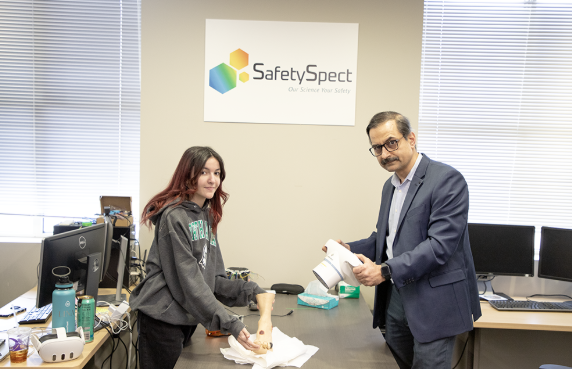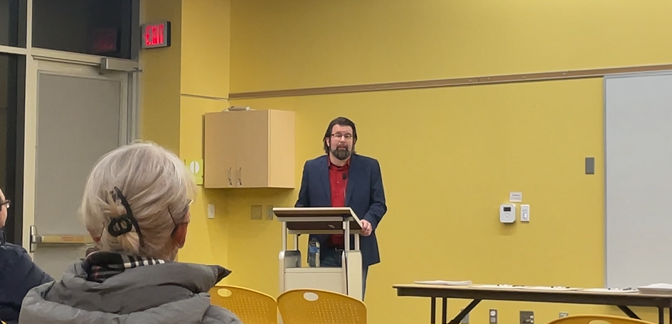Actors and Robots Helping Medical Students Get Closer to Dream Job
They're doing it through UND's SHaPE program, which started two years ago
FARGO, N.D. — Third–year medical students at UND are getting even closer to their dream job with a little help from actors and robots.
KVRR’s Danielle Church tells us how simulations are helping students to advance their learning experience.
Anna Melicher is the type of person who loves to be around others.
“I just loved working with people so much. I started out pre–pharmacy and did some shadowing and there just wasn’t enough patient interaction so that’s when I decided to go and apply to medical school and here I am and I’m loving it,” Anna said.
She’s now a third–year med student at UND..
…brushing up on all her patient interaction skills she learned during the first two years with the rest of her classmates.
They’re doing it through UND’s SHaPE program, which started two years ago.
“They noticed a trend after third–year. The students were learning 1,000 different things about so many areas of being a physician and different clerkships but some of their clinical skills that they worked so hard to perfect almost in second year started to decline so this program helps them keep up those clinical skills,” said Stephanie Flyger, SHaPE Project Coordinator.
To brush up on some of those skills…
…students are simulating a doctor’s visit, asking patients questions about their medical history and then performing a physical exam to find a diagnosis.
“We have a grader in the room so it’s a little nerve racking,” Anna said.
“Essentia has been outstanding to work with. We’re kind of all in this together as far as healthcare goes in North Dakota. Med school is trying to put out more physicians and they’re partnering with us to keep them educated and to keep up their skills,” Stephanie said.
They also simulated a patient’s visit to the emergency room….
…with help from Dennis the robot, something med students aspire not to be once they see patients every day.
“Once you get into the role of it, you can kind of act a little less like a robot like we all kind of do in the first couple years and work your personality more into it,” Anna said.
Dennis is just one of many simulation models UND’s SIM–ND truck uses to train medical professionals in rural areas.






